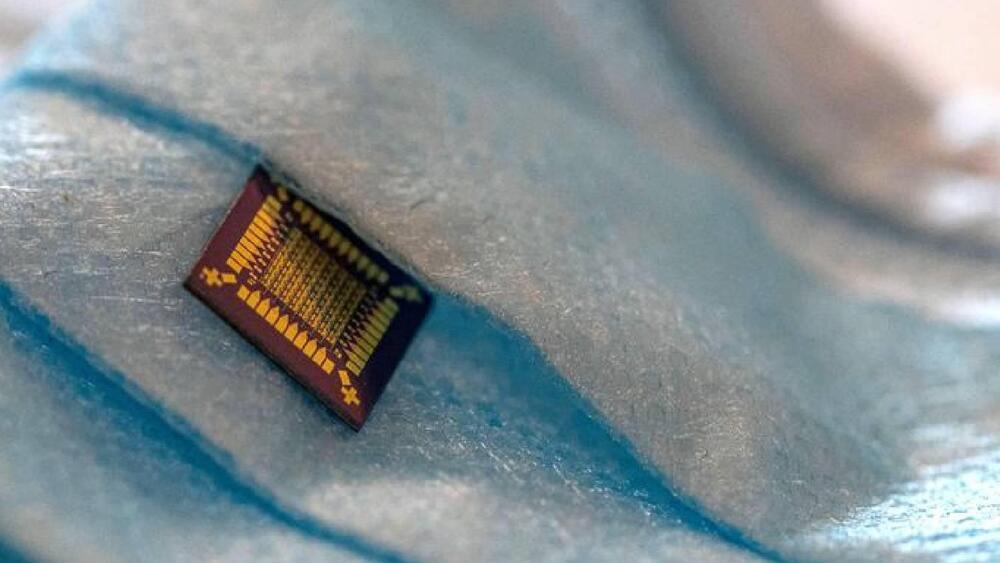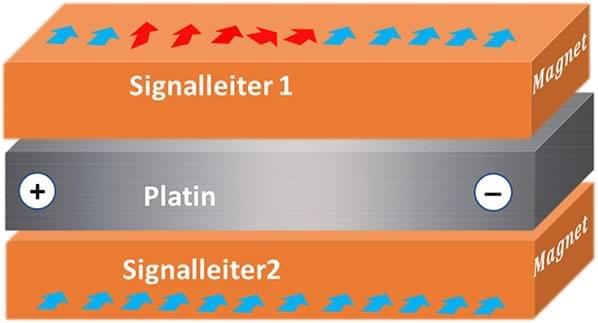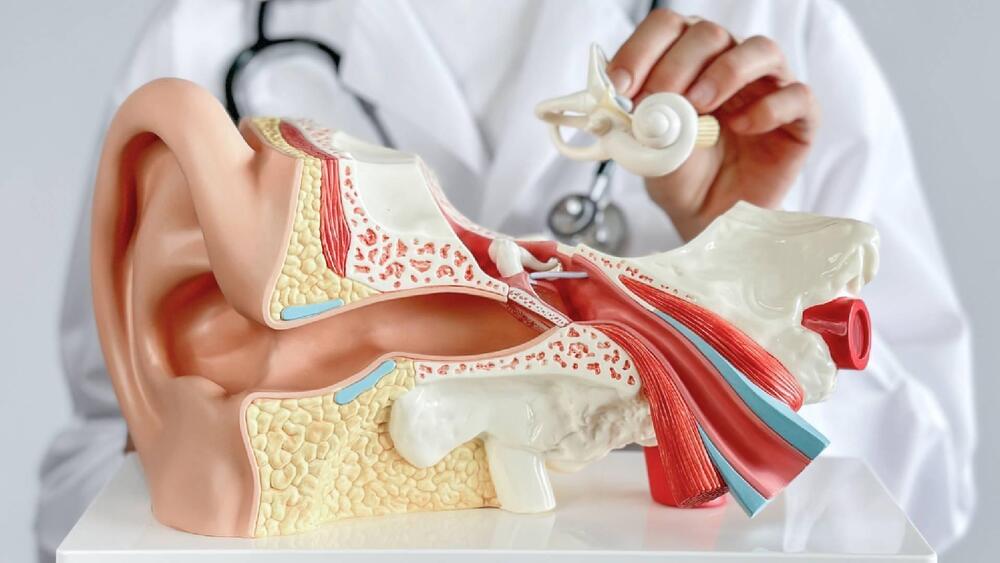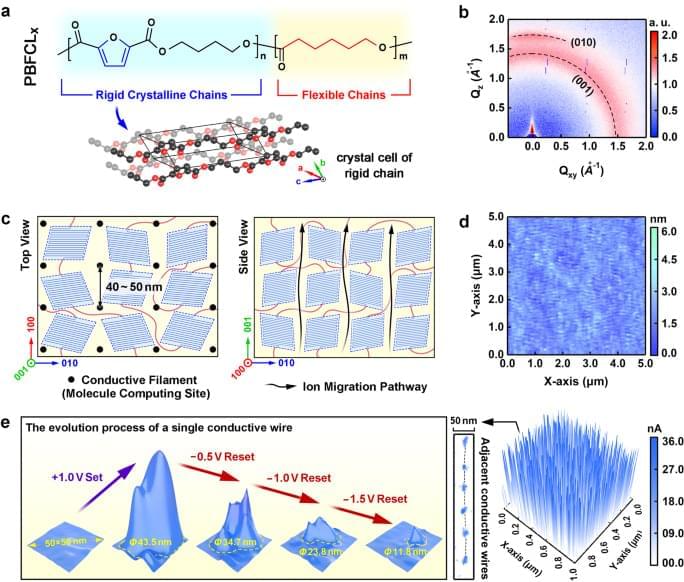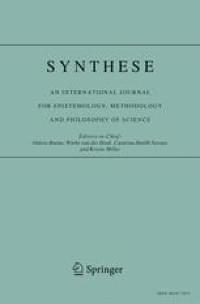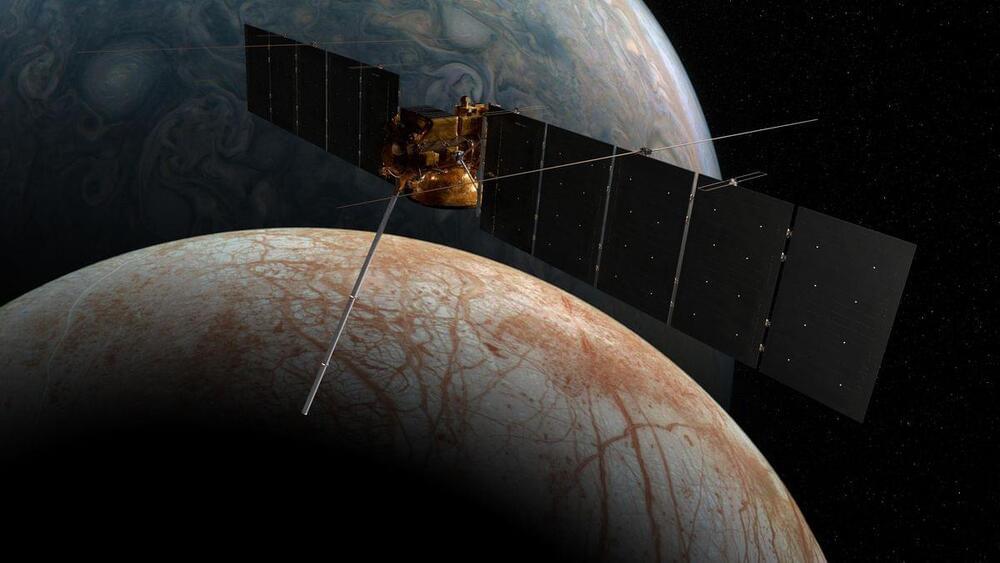Archive for the ‘computing’ category: Page 176
Nov 27, 2023
Part-biological transistors change and adapt like living tissue
Posted by Dan Breeden in categories: biological, computing
Fio Omenetto, Silklab, Tufts University.
Transistors were a pivotal innovation in the evolution of electronic technology, and they have played a critical part in the miniaturization and advancement of electronic equipment. However, they could be even better.
Nov 27, 2023
New study shows how heat can be used in computing
Posted by Dan Kummer in categories: computing, particle physics
Physicists at Martin Luther University Halle-Wittenberg (MLU) and Central South University in China have demonstrated that, combining specific materials, heat in technical devices can be used in computing. Their discovery is based on extensive calculations and simulations. The new approach demonstrates how heat signals can be steered and amplified for use in energy-efficient data processing.
The team’s research findings have been published in the journal Advanced Electronic Materials (“PT-Symmetry Enabled Spintronic Thermal Diodes and Logic Gates.”).
Information signals are encoded as thermal spin waves (red arrows). Logical operations are realized with two magnetic strips (signal conductors) and precisely controlled with current pulses in a spacer (platinum). (Image: Berakdar group)
Nov 27, 2023
High-tech soccer ball unveiled for Euro 2024 promises more accurate offside decisions
Posted by Kelvin Dafiaghor in category: computing
A high-tech soccer ball that helps with more accurate offside decisions will make its European Championship debut next year in Germany after being used at the 2022 World Cup.
European soocer governing body UEFA and manufacturer Adidas unveiled the ball for Euro 2024 in Berlin on Wednesday. It is named “Fussballliebe,” the German word for “love of soccer,” and will be used at next year’s 51-game tournament from June 14-July 14.
A chip fixed on a gyroscope inside the ball sends data 500 times per second to record the point at which it is kicked. The “kick point” helps match officials make offside decisions using multiple camera angles to create 3D visualizations that illustrate player movement.
Nov 27, 2023
DeltaHawk’s advanced aircraft piston engine goes green with hydrogen fuel
Posted by Gemechu Taye in categories: computing, transportation
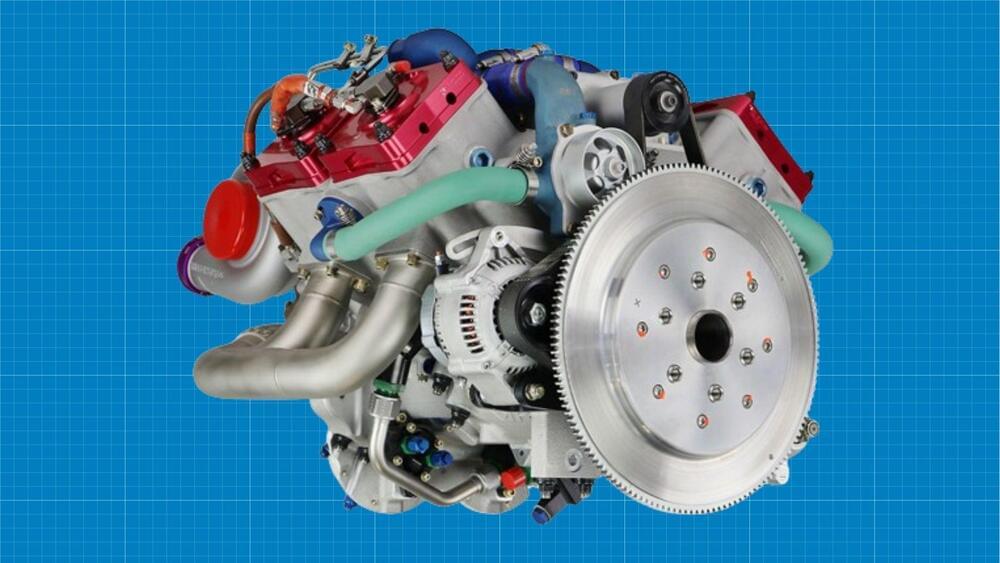
The firm claims that the technology “testing in computer simulations is proving superior to legacy four-stroke engine architectures.”
DeltaHawk.
Continue reading “DeltaHawk’s advanced aircraft piston engine goes green with hydrogen fuel” »
Nov 27, 2023
Complete computer model of the ear simulates every aspect of hearing
Posted by Gemechu Taye in category: computing
The model offers a non-invasive method for studying hearing impairments.
Gerenme/iStock.
The human hearing system is a complex and intricate sensory mechanism that enables us to perceive and interpret sound. This system involves several elaborate anatomical structures and physiological processes working together.
Continue reading “Complete computer model of the ear simulates every aspect of hearing” »
Nov 27, 2023
An ultrasmall organic synapse for neuromorphic computing
Posted by Dan Breeden in category: computing
Designing high performance organic neuromorphic devices remains a challenge. Here, Liu et al. report the development of an organic synapse based on a semicrystalline polymer PBFCL10 with device dimension of 50 nm and integration size of 1 Kb and a mixed‐signal neuromorphic hardware system based on the organic neuromatrix and FPGA controller for decision‐making tasks.
Nov 26, 2023
Does a rock implement every finite-state automaton?
Posted by Dan Breeden in category: computing
Hilary Putnam has argued that computational functionalism cannot serve as a foundation for the study of the mind, as every ordinary open physical system implements every finite-state automaton. I argue that Putnam’s argument fails, but that it points out the need for a better understanding of the bridge between the theory of computation and the theory of physical systems: the relation of implementation. It also raises questions about the class of automata that can serve as a basis for understanding the mind. I develop an account of implementation, linked to an appropriate class of automata, such that the requirement that a system implement a given automaton places a very strong constraint on the system. This clears the way for computation to play a central role in the analysis of mind.
Nov 26, 2023
Quantum Advantage: A Physicist Explains The Future of Computers
Posted by Paul Battista in categories: computing, encryption, information science, quantum physics

Quantum advantage is the milestone the field of quantum computing is fervently working toward, where a quantum computer can solve problems that are beyond the reach of the most powerful non-quantum, or classical, computers.
Quantum refers to the scale of atoms and molecules where the laws of physics as we experience them break down and a different, counterintuitive set of laws apply. Quantum computers take advantage of these strange behaviors to solve problems.
Continue reading “Quantum Advantage: A Physicist Explains The Future of Computers” »
Nov 26, 2023
I’m sending my name to Jupiter’s moon Europa on a NASA spacecraft — and here’s why you should, too
Posted by Genevieve Klien in categories: computing, space travel
NASA’s Europa Clipper spacecraft is headed to one of Jupiter’s largest moons. It’s bringing along a microchip filled with human names.

